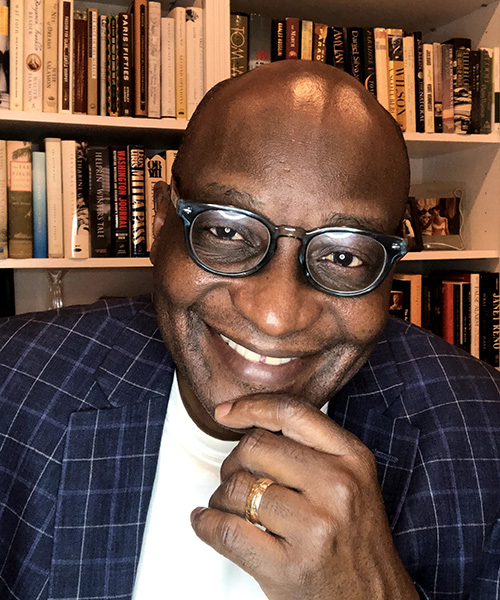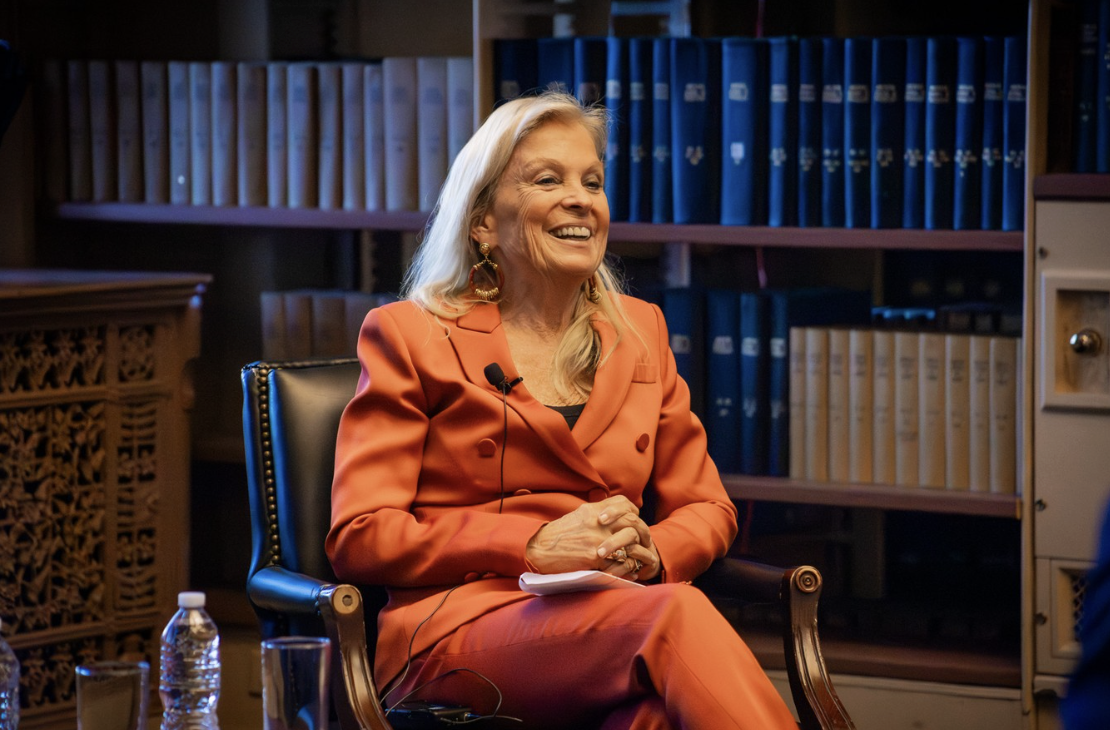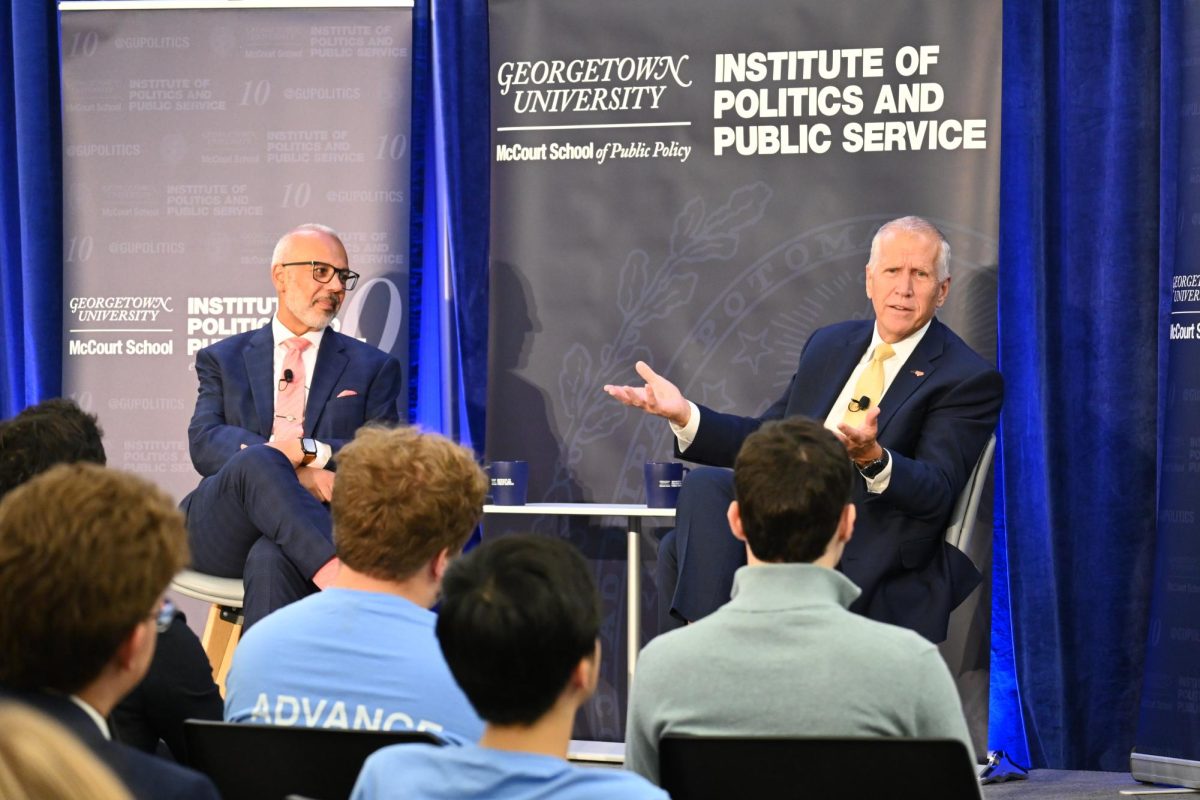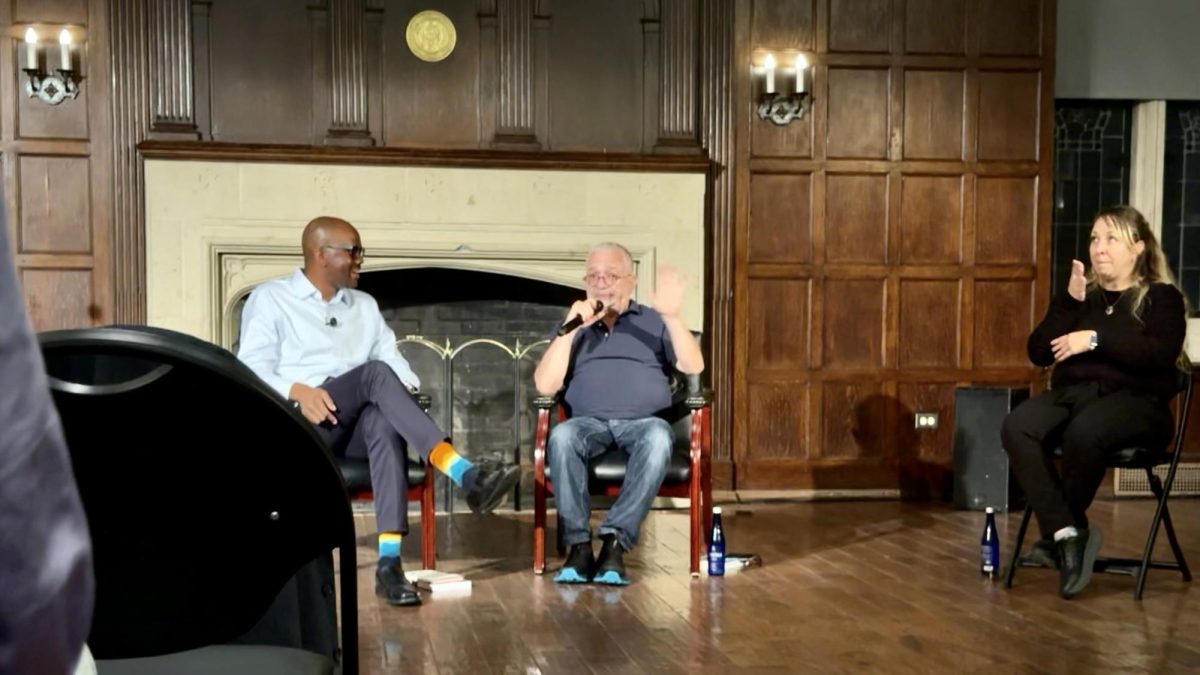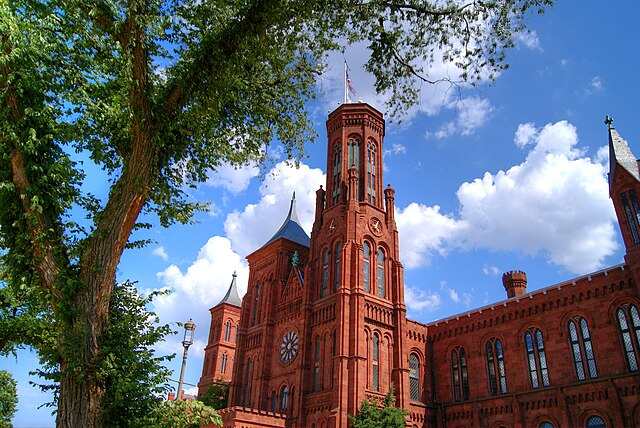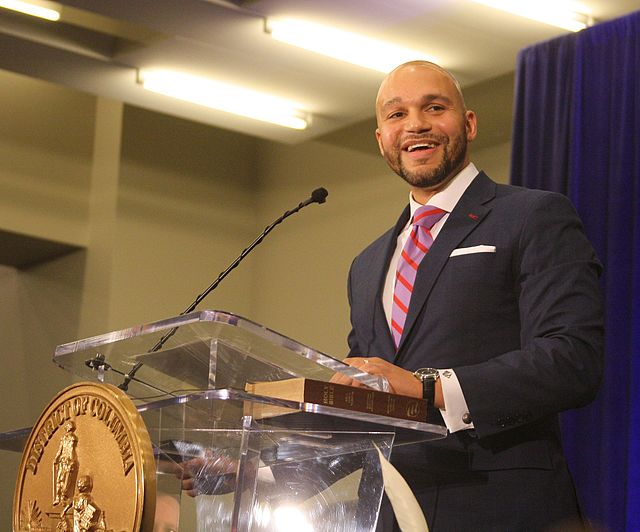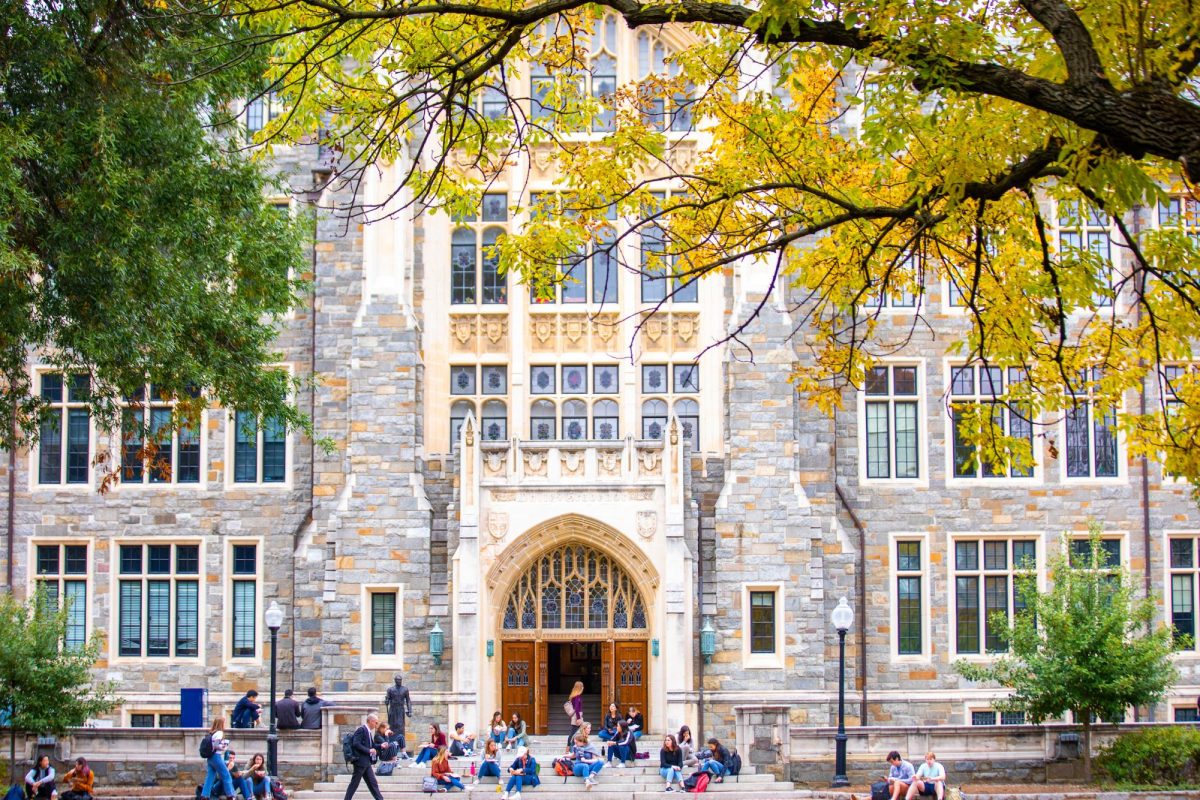A Georgetown University constitutional law professor and the government department chair analyzed current Supreme Court cases and their political implications during a Sept. 16 event.
Joseph Hartman, a government professor, and Anthony Arend, the department chair, detailed two ongoing legal cases involving President Donald Trump: challenges to his sweeping tariffs on foreign countries and his dismissal of a Federal Reserve Board governor. The event, which was coordinated with the university’s Office of the President, celebrated Constitution Day, the anniversary of the signing of the U.S. Constitution on Sept. 17, 1787.

Hartman said Trump’s attempted dismissal of Federal Reserve governor Lisa Cook raises constitutional questions over the president’s unilateral authority to dismiss independent executive department officials.
“It’s likely that where we’re going to end up is much less limitation on presidential control in terms of termination and more restriction on Congress’s ability to limit that in any way,” Hartman said at the event. “So you can look at the entire administrative apparatus as probably moving from insulated expertise that’s nonpartisan to a position that’s much more within the control of elected officials.”
A federal circuit court ruled Sept. 15 that the termination violated Cook’s right to due process. Though she is an executive branch official, the Federal Reserve Act specifies presidents can only dismiss governors “for cause.” Trump pointed to allegations against Cook of mortgage fraud, though she has not faced any charges.
Arend said legal challenges to Trump’s tariff policy — which is based on a broad interpretation of a 1977 law designed to authorize a response to an “unusual and extraordinary threat” — will test the Supreme Court’s willingness to overturn lower courts’ rulings, which have found the tariffs to be illegal.
“If you read the lower court’s decision, in my view, they’re airtight,” Arend said at the event. “But the way the Supreme Court has been ruling, the way the Supreme Court has been overturning precedents, it would not surprise me if the Supreme Court ends up ruling that the President does have this authority, despite the opinions of lower courts.”
The Supreme Court scheduled oral arguments for the tariff case in November. The termination case is also expected to reach the Supreme Court soon.
At the event, multiple students expressed concern that the Supreme Court has become a partisan battleground and has lost some of its political independence. Many experts have also pointed to increasing ideological divides along party lines among the justices.
Arend acknowledged those worries but said he believes the rule of law will prevail.
“There are a lot of things that are bubbling up; there’s so many cases out there we’re having stays that we’re having injunctions, all this stuff,” Arend said. “But we haven’t yet, in my view, reached that point yet.”
Hartman said he believes the justices are not as partisan as they are ideological, pointing to the extensive judicial experience that Justices Samuel Alito, Clarence Thomas and Robert Kavanaugh and Chief Justice John Roberts have.
“I tend to think it’s less about political partisanship than about either ideological or jurisprudential views, and I think you can see that with them,” Hartman said. “There’s no question in my mind that the bias toward deference to the executive with respect to this kind of thing is very much a part of at least three or four of these justices, and has been for a long time.”
Hartman added that he thinks many elected officials appear to have lost their commitment to institutional independence.
“The party seems to have completely overtaken the institution,” Hartman said. “And where I’m looking now, parties seem even more overly dominant relative to the institutional loyalties. I mean, I’m not sure where that goes.”
Arend said the tariffs case will hinge on how Trump interpreted Congress’s 1977 statute and what powers it confers on the executive.
“It’s going to come down to, ‘Did Congress have the authority to delegate this to the President?’” Arend said. “If the answer is no, which the lower courts have ruled, that’s going to be a huge setback for the entire foreign policy of the Trump administration.”





